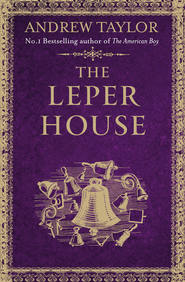По всем вопросам обращайтесь на: info@litportal.ru
(©) 2003-2024.
✖
Fallen Angel
Автор
Год написания книги
2019
Настройки чтения
Размер шрифта
Высота строк
Поля
Lucy began to cry again. The intercom twisted and distorted her sorrow.
‘That’s enough, dear. I don’t want to have to get cross. Think how sad Mummy would be if she heard you’ve been naughty.’
The crying grew louder.
‘Lucy. You won’t like it if I have to get cross. Naughty children have to be punished.’
The wails continued. There was a sharp report like the crack of a whip. The crying stopped abruptly.
‘We don’t allow cry babies here, dear. You’re going to have to pull your socks up, aren’t you?’
Eddie could bear it no longer. He switched off the intercom and listened to the silence seeping into the kitchen like water flowing into a pool.
Here we all were on this overcrowded planet, Eddie thought, all members of the same species and yet each of us a mystery to everyone else. Especially Angel, who, like Churchill’s Russia, was a riddle wrapped in a mystery inside an enigma. For example, where did she come from? How old was she? Who was she? If she did not particularly like little girls, why did she spend so much time with them? Last but not least, why had Angel said that Lucy was special? What made Lucy different from the other three?
Nothing about Angel was straightforward. To all intents and purposes she might have been born adult less than six years before, on the March evening when Eddie met her. She came to the house in Rosington Road in answer to an advertisement which Eddie’s mother had put in the Evening Standard. The advertisement gave the name of the road but not the Graces’ name or the number of the house. Eddie’s mother said that you couldn’t be too careful, what with all the strange people roaming round the streets today.
From the start, Thelma refused to consider male applicants. ‘They’re dirty beasts. Women are tidier and cleaner.’ Eddie himself was excepted from this general view of the male sex, which confirmed his suspicion that his mother did not think him entirely masculine.
When Angel phoned, Eddie’s mother gave her the number of the house almost immediately. She liked Angel’s voice.
‘At least she speaks the Queen’s English. More than you can say for the rest of them. And she says she’s got a job. I don’t want one of those Social Security scroungers under my feet all day.’
There had been nine other calls before Angel’s, but none of them had led to an invitation to see the room. Thelma disliked the Irish, West Indians, Asians and anyone with what she termed a ‘lower class’ accent.
When the doorbell rang, Eddie and his mother were watching television in the front room.
‘She’s on time,’ Thelma commented, looking at her watch. ‘I’ll say that for her.’
Eddie went into the hall and peeped through the fish-eye lens at the person on the doorstep. He could see very little of her, because she had turned to stare at the traffic on the road; and in any case, she was wearing a long, pale mackintosh with a hood. As he opened the door she turned to face him.
She was beautiful. For an instant her perfection paralysed him. He had never seen anyone so beautiful in real life, only on television, in pictures and in films. She stared at him as though she were assessing his suitability rather than the other way round.
‘Ah,’ he said. ‘Ah, Miss – ah – come in.’
There was an infinitesimal pause. Then, to his relief, she smiled and came out of the rain. Angel was about his own height, which was five feet six. She had a long, fine-boned face, the skin flawless as a child’s. Thelma, pop-eyed with suspicion, escorted her upstairs to see the spare room. Eddie lurked in the hall, listening.
‘How lovely,’ he heard Angel say. ‘And, if I may say so, how tastefully decorated.’ Her voice was self-assured, the crisp enunciation hinting at a corresponding clarity of thought.
By the time they came downstairs again the two women were chatting almost like friends. To Eddie’s amazement, he heard his mother offering hospitality.
‘We generally have a glass of sherry at this time, Miss Wharton. Perhaps you’d care to join us?’
‘That would be lovely.’
Thelma stared at Eddie, who after an awkward hiatus leapt to his feet and went to the kitchen to search for the bottle of sweet sherry which his father had opened the Christmas before last. When he returned with three assorted glasses on a tray, the women were discussing how soon Angel could move in.
‘Subject to a month’s deposit and suitable references, of course.’
‘Naturally.’ Angel opened her handbag. ‘I have a reference here from Mrs Hawley-Minton. She’s the lady who runs the agency I work for.’
‘A nursing agency?’
‘Nursery nursing, actually. Essentially it’s an agency for nannies with nursing training.’
‘Eddie,’ Thelma prompted. ‘The sherry.’
He handed round the glasses. Angel passed an envelope to Thelma, who extracted a sheet of headed paper and settled her reading glasses on her nose. Eddie and Angel sipped their sherry.
‘I see that Mrs Hawley-Minton knew your parents,’ Thelma said, her stately manner firmly to the fore.
‘Oh, yes. That’s why she took me on. She’s very careful about that sort of thing.’
Thelma peered interrogatively over her reading glasses.
‘An agency like hers is a great responsibility,’ Angel explained. ‘Particularly as children are concerned. She believes one can’t be too careful.’
‘Quite,’ said Thelma; and after a pause she added, ‘I do so agree.’ She folded the letter and handed it back to Angel. ‘Well, Miss Wharton, that seems quite satisfactory. When would you like to move in?’
In those days, Angel was always Miss Wharton. Thelma took refuge in obsolete formality. Eddie avoided calling Angel anything to her face, but sometimes at night he whispered her Christian name, Angela, trying it for size in his mouth, where it felt awkward and alien.
By and large, Angel kept to her room. She was allowed the use of the bathroom, of course, and she had her own latchkey. For a time she had all the virtues, even negative ones.
‘I’m so glad she doesn’t smoke,’ said Thelma, who had converted her former pleasure into a vice. ‘It would make the whole house smell, not just her room. But I suppose she wouldn’t, being a nurse.’
Before Angel moved in, Thelma had worried a great deal about the telephone. She had visions of Angel making unauthorized calls to Australia, of the phone ringing endlessly (a woman who looked like that was bound to have an active social life), of long conversations with girlfriends and, even worse, boyfriends.
Angel soon calmed Thelma’s fears. She rarely used the phone herself, and when she did she kept a meticulous record of the cost. Nor did she receive many incoming phone calls. Most of them were to do with her work – usually from Mrs Hawley-Minton’s agency. As the weeks went by, Thelma developed a telephonic acquaintance with Mrs Hawley-Minton.
‘They value Miss Wharton very highly,’ she reported to Eddie. ‘Mrs Hawley-Minton tells me that her clients are always asking to have her back. One of them was a real prince. His father was a king. Bulgaria, was it? He was deposed a long time ago, of course, but even so.’
Eddie envied Angel her job. He thought a good deal about her children and what she might do with them. Sometimes he tried to imagine that he was she, that he was in her clothes, in her skin, behind her eyes.
‘She’s working in Belgrave Square this week,’ Thelma would say, telling Eddie for want of anyone better to talk to. ‘He’s a Peruvian millionaire, and she’s something to do with the embassy.’ And Eddie would see dark-haired children with solemn faces and huge eyes in an attic nursery with barred windows; he would see himself looking after them and playing with them, just as Angel did.
Thelma was curious about Angel’s antecedents, and about her apparently non-existent social life. ‘If you ask me, she’s been unlucky in love. Don’t tell me a girl like that hasn’t had plenty of opportunities. I bet she has men chasing after her with their tongues hanging out every time she walks down the street.’
Thelma’s coarseness surprised Eddie, even shocked him. She had never shown that side of herself when Stanley had been alive. He noticed that the hypothetical fiancé appealed greatly to her.
‘I wonder if she was engaged, and then he was killed, and since then she’s never looked at another man.’ Thelma also had a strong sentimental streak, buried deep but liable to surface unexpectedly. ‘Perhaps he was in the army. Miss Wharton’s father was, you know.’ It transpired that Mrs Hawley-Minton’s late husband had been a brigadier, and he and Angel’s father had served together in India during the war. ‘I think both parents must be dead,’ Thelma confided. ‘She seems quite alone in the world.’
Thelma’s curiosity about Angel extended to her possessions. Angel kept her room clean and made her own bed. But Thelma retained a key, and every now and then, when Angel was out, she would unlock the door of the back bedroom and cautiously investigate her lodger’s private life.
‘I’m not being nosy. But she’s my responsibility in a way. And I have to make sure she’s not burning holes in the bedspread or leaving the fire on when she goes out.’
Eddie watched his mother on one of these incursions. He stood in the doorway of the back bedroom – a landlady’s dream: clean, tidy, smelling faintly of polish and Angel’s perfume. Thelma moved slowly round the room in a clockwise direction. She opened doors and pulled out drawers. On top of the wardrobe was a large modern suitcase.
‘Locked,’ Thelma commented, curious but not annoyed.











